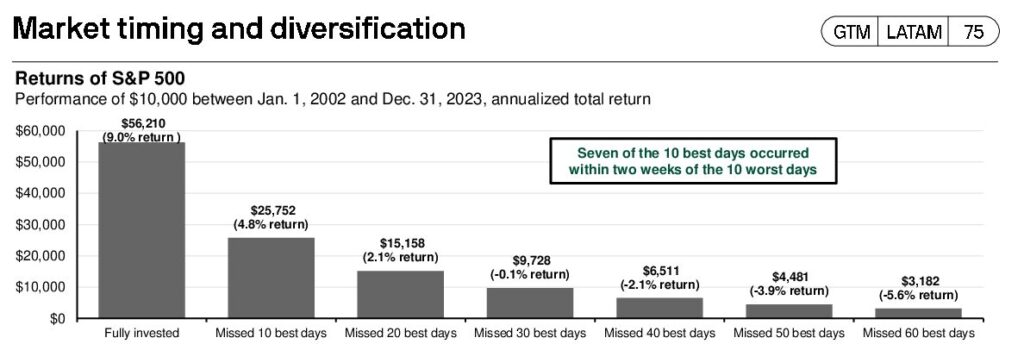
Best Financial Advisors in San Diego
At Platt Wealth Management you can expect to partner with expert financial advisors who offer a unique and personal approach to wealth management. You deserve smart strategies built specifically for your individual needs and a financial advisor who takes the time to listen to your goals and dreams. When you work with a local San Diego financial advisor you can develop that in-person connection from a trusted boutique advisory firm. You won’t get that level of care from just anyone.
Not only does Platt Wealth Management focus on a client-first approach to financial planning, but we take our fiduciary responsibility seriously. Our team of advisors, Jeff Platt, Curtis West, and Kai Kramer are experienced professionals dedicated to understanding your concerns. They will work with you to develop a comprehensive financial strategy that fits your current situation and future plans.
By learning your goals we can look at all the ways you can get there. Then, we will tailor our strategy to meet or exceed those goals. You can reach your goals and realize your dreams, and it’s easier with the right support and guidance from financial professionals who take what matters to you seriously. Here’s what to know about us, why we’re different, and what to look for when you choose a financial advisor.
What to Look for in a San Diego Financial Advisor
Selecting the right financial advisor is a critical decision that can significantly impact your financial well-being. To ensure you choose a professional who aligns with your financial goals and interests, there are some essential criteria you want to carefully consider.
First, assess the advisor’s qualifications and credentials. Certifications such as Certified Financial Planner (CFP®), Chartered Financial Analyst (CFA), and Master of Science in Business Administration (MSBA) indicate expertise in financial planning, investment strategies, and data-driven decision-making. For example, a CFP® has undergone rigorous training in financial planning and ethics, and a CFA specializes in investment management strategies. Someone with an MSBA brings advanced business skills to the table, providing sound advice for your financial decision-making.
Second, prioritize advisors who operate under a fiduciary duty, like those at Platt Wealth Management. We have a fiduciary duty to all our clients, which minimizes any conflicts of interest. This is a crucial distinction, because not all financial advisors are required to follow this standard.
Some may operate under a suitability standard, meaning they can recommend products that are merely appropriate but may not be the best option for you. Many are commission-based, and may choose a higher-commission product over a lower-commission option, even if it’s not necessarily the right product for your needs.
Choosing a fiduciary financial advisor ensures that your advisor is legally and ethically obligated to act in your best interest. Here’s why that matters:
-
- Fiduciaries Put Your Interests First: Unlike non-fiduciary advisors who may recommend products that earn them commissions, a fiduciary must prioritize your financial well-being over their own compensation.
-
- Transparency & Trust: Fiduciary advisors must disclose all potential conflicts of interest, ensuring you get objective and honest advice.
-
- Fee-Based vs. Commission-Based: Many fiduciary advisors operate on a fee-only model, meaning they earn money directly from you rather than commissions from financial products. This minimizes bias in their recommendations.
-
- Higher Standard of Care: Fiduciaries must follow the “Prudent Person Rule,” meaning they must make careful and well-researched decisions in managing your assets.
-
- Long-Term Financial Success: Since their compensation is often based on a percentage of assets managed (or a flat fee), fiduciaries are incentivized to grow and protect your wealth, rather than push products that may not suit your needs.
Another key to choosing the right financial professional is their fee structure. A fee-only financial planner earns compensation solely from client fees rather than commissions on financial products. This model ensures transparency and reduces the likelihood of biased recommendations. In contrast, commission-based advisors might have incentives to push specific financial products, which could create a conflict of interest.
Customization is also an essential part of selecting a financial advisor. Your financial situation, risk tolerance, and long-term objectives are unique to you, and a one-size-fits-all approach may not give you what you’re looking for. You should seek out an advisor who takes the time to understand your financial goals, whether that’s retirement planning, wealth preservation, or tax efficiency, and tailors their advice accordingly.
Additionally, evaluate an advisor’s communication style and accessibility. We want you to be comfortable talking to us, feel heard, and get your questions answered. Our advisors strive to be proactive, responsive, and capable of explaining complex financial concepts in a way that you understand.
Lastly, check out our advisors’ track records and client reviews. Research their backgrounds through regulatory bodies such as the Securities and Exchange Commission (SEC) or the Financial Industry Regulatory Authority (FINRA) for your peace of mind, to help you feel secure in choosing us to manage your funds and provide you with financial advice.
Choosing a financial advisor requires due diligence, but by focusing on fiduciary duty, fee transparency, credentials, and personalized strategies, you can make an informed decision that supports your long-term financial success and see how Platt Wealth Management can meet your needs.
Meet the Financial Advisors at Platt Wealth Management
Understanding who will be managing your finances and growing your wealth is extremely important, and you want to feel confident that you’re making the right choice.
Jeff Platt, JD, LLM, CFA, CFP® – Founder & Chief Investment Officer
- Over 30 years of experience in investment management and wealth planning.
- Over eleven years in commercial real estate.
- Holds CFP®, CFA, JD, and LLM in Taxation from USD School of Law.
- Specializes in high-net-worth financial planning, investment strategy, and tax efficiency.
- Serves on multiple San Diego investment and financial committees.
Curtis West, CFP®, MSBA – Lead Financial Advisor
- Over 20 years of experience in financial services.
- Holds a Masters of Science in Business Administration (MSBA) and CFP® certification.
- Passionate about helping clients develop financial strategies that eliminate uncertainty.
- Specializes in retirement planning, investment growth, and tax-efficient strategies.
- Dedicated to mentoring and financial education, volunteers at CalEx Experience Camp.
Kai Kramer, CFA Candidate Level 1 – Financial Advisor
- CFA Level 1 Candidate with Series 65 Investment Adviser License.
- Background in economics and financial research from UCLA.
- Works on portfolio management, investment strategy, and financial planning analysis.
- Focuses on helping clients develop long-term wealth-building strategies.
Our advisors have years of experience and dedication to clients, giving you peace of mind, support, guidance, and the information you need for comprehensive financial planning.
Questions to Ask a Financial Advisor Before Hiring Them
Before you hire a financial advisor there are plenty of important questions to ask. You want to be prepared for consultations so you can make informed decisions for your financial future. At a minimum, be sure you understand the advisor’s approach, fees, and expertise. Then, ask questions that can help you gauge trustworthiness, experience, and compatibility. Here are some of the biggest questions to ask before choosing a financial advisor.
-
- Are you a fiduciary, and do you always act in my best interest?
- What are your qualifications and certifications?
- How do you charge for your services (fee-only, commission, or fee-based)?
- What is your investment philosophy?
- Do you have experience working with clients in my financial situation?
- How will we communicate, and how often will we meet?
- What happens to my financial plan if something happens to you?
- How do you handle market volatility and changes in economic conditions?
- Can you provide client testimonials or references?
- What sets your firm apart from other top financial advisors in San Diego?
Our advisors are happy to answer your questions. We understand the value of transparency and operate with an openness you can rely on. While choosing a financial advisor should be based on what they can do for you and your financial future, you also want to choose someone you feel comfortable with and can work with for the long term.
Why Choose Platt Wealth Management?
When you need a trusted San Diego financial firm operating with fiduciary duty, you need Platt Wealth Management. We’re a boutique firm with a highly personalized approach to financial planning and a fee-only structure that prioritizes client interests over commissions, so you know you’re getting the investment advice and strategy that’s right for your needs. Unlike many independent wealth management firms, we align our services to your goals and dreams, sharing our knowledge and expertise to increase your portfolio.
We offer a range of comprehensive services, including tax strategies, investment planning, and retirement planning, so you can work on your wealth management plans for your current situation and in the long-term. Choosing a financial advisor doesn’t have to be difficult when you come to us. We understand the serious nature of making this decision, and are dedicated to making it easy for you to see why we are a quality choice for your needs.
How to Choose the Best San Diego Financial Advisor
Selecting the right financial advisor is a critical decision that can significantly impact your financial well-being, both now and for the future. To ensure you choose a professional who aligns with your financial goals and interests, there are some steps we suggest.
Step 1: Identify Financial Goals
What are your financial objectives? Before searching for an advisor, you should be clear on whether you’re focused on retirement planning, wealth preservation, tax efficiency, or investment growth. Having clear goals will help you find an advisor who specializes in your needs.
Step 2: Research and Compare Fee Structures, Credentials, and Advisory Approaches
Once you know your goals, it’s time to research potential advisors. Look for professionals like ours, with relevant credentials such as Certified Financial Planner (CFP®) or Chartered Financial Analyst (CFA). These certifications indicate expertise in financial planning, investment management, financial guidance, and decision-making.
Additionally, consider the advisor’s fee structure. Our fee-only advisors, who earn compensation solely from client fees, can provide transparent and unbiased advice that may not be offered by commission-based advisors. Before you settle on any fee-only advisor, evaluate their advisory approach to ensure it aligns with your financial philosophy.
Step 3: Schedule Consultations to Discuss Strategy, Communication Style, and Fiduciary Status
Meeting with potential advisors is crucial for assessing compatibility. During a consultation, ask them to talk about their investment strategy, communication style, and whether they adhere to a fiduciary duty. Our firm operates as fiduciaries, so we’re legally and ethically required to act in your best interest. Also ask about your potential advisor’s approach to ongoing financial planning and how often they review investment portfolios.
Step 4: Review Investment Philosophies and Long-Term Planning Capabilities
A financial advisor’s investment philosophy should align with your risk tolerance and long-term goals. Some advisors take an aggressive approach, while others focus on wealth preservation. Additionally, you should assess an advisor’s ability to develop a long-term financial plan that evolves as your life changes, market conditions fluctuate, and economic trends adjust. You want, need, and deserve ongoing support and adjustments to keep your plans on track.
By following a structured approach to finding an advisor you can confidently choose someone who understands your financial goals, which can help you experience long-term success.
Secure Your Financial Future with Expert Guidance
Choosing one of our expert advisors at Platt Wealth Management can help you grow your wealth, manage your investments, and experience peace of mind. Our fiduciary responsibility and commitment to clients comes through in everything we do, and our focus is on how we can help you see more value from your portfolio.
We’re here to help you recognize your goals and dreams, and get closer to them every day with trusted guidance and support. Schedule a free consultation today to talk about how our advisors can put their experience and expertise to work for your future.
Dream. Plan. Do.
FAQs
What services does Platt Wealth Management offer?
Platt Wealth Management offers financial planning services including retirement planning, tax strategy, charitable giving, investment management, and custom financial planning options.
How does Platt Wealth Management charge for its services?
Platt Wealth Management is an independent, fiduciary, fee-only firm, meaning we don’t sell commission-based investment products, annuities, or insurance. When it comes to financial advisor cost, we charge only transparent fees for assets under management or flat fees for our services.
What is the advantage of working with a boutique financial firm?
Working with a boutique firm gives you the advantage of white glove services and custom strategies designed specifically for your financial situation. Our advisors understand that every client and their situation is unique, and there’s no one-size-fits-all approach.
How can I schedule a consultation with a Platt advisor?
You can schedule a consultation with a Platt advisor on our website, by emailing info@plattwm.com, or by calling us at 619.255.9554. We’re located in San Diego, CA.
Is Platt Wealth Management a fiduciary?
Yes, Platt Wealth Management is a fiduciary with the legal and ethical requirement of providing advice, services and investments that are best for you, the client.
What should I prepare before my first meeting?
Before your first meeting, make a list of questions you want to ask. You can bring financial statements and other information about your current situation, as well as thoughts about your goals and dreams for the future. Our advisors will help with the rest.
Contact Us
We look forward to speaking with you about your financial plans and investments.
info@plattwm.com
Phone
619.255.9554
Office Address
3838 Camino del Rio North, Ste 365
San Diego, CA 92108






